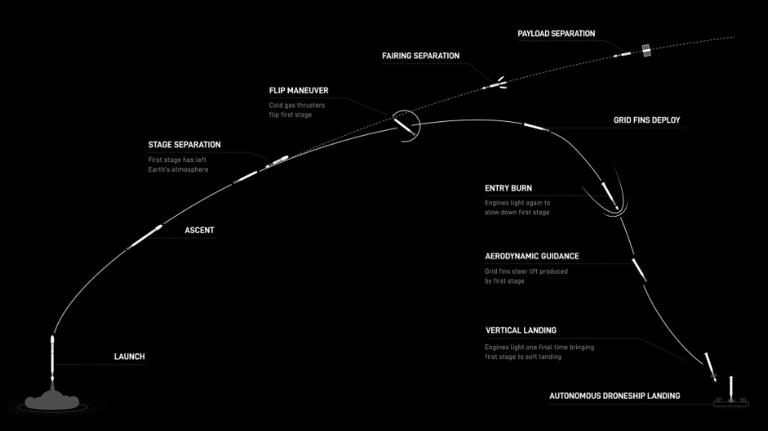
“Malta’s fast-growing economy is confronted with long-term sustainability challenges”, the European Commission’s European Semester Report into Malta for 2020 pointed out.
In a lengthy report issued earlier this week, the Commission carried out an assessment of progress on structural reforms, prevention and correction of macroeconomic imbalances, while also comparing assessing Malta’s progress in terms of the recommendations given to it by the Commission in 2019, and its Sustainable Development Goals.
The Commission noted that while the economy has been experiencing fast growth and sustained employment creation for several years, there are several long-term structural challenges remain. These include the fiscal sustainability implications of ageing; low skills levels; and governance vulnerabilities.
“In addition, demographic and economic growth is expected to put further pressure on Malta’s infrastructure and natural resources. It is therefore key to strengthen long-term resilience through innovation; improve infrastructure quality; and take further steps towards a climate-neutral and environmentally sustainable economy”, the assessment reads.
The recommendations are published each year, and the Commission noted that Malta has made “limited” progress in addressing the recommendations put to them in 2019.
They noted that there was some progress in strengthening the anti-money laundering framework; in focusing on investment-related economic policy on research and innovation; in improving the management of natural resources and improving resource and energy efficiency; and improving inclusive education and training.
Meanwhile they said that the country had registered limited progress in ensuring sustainable transport and reducing traffic congestion; in strengthening the judicial independence, through the establishment of a separate prosecution service; and strengthening the overall governance framework, including by continuing efforts to detect and prosecute corruption.
There has then been no progress in ensuring long-term sustainability of public finances by addressing shortcomings of the pension and healthcare systems, or in addressing features of the tax system that may facilitate aggressive tax planning, they said.
The assessment meanwhile pointed out that some progress had been made in Malta’s Sustainable Development Goals – especially in the ‘decent work and economic growth’ goal.
Economy expected to slow down, but will remain one of the EU’s strongest growing
The Commission noted that while Malta’s economic growth is expected to slow down, it will remain among the strongest in the EU, supported by strong domestic demand and a vibrant, export oriented services sector.
Real GDP growth is expected to gradually moderate, from 4.5% in 2019 to 4% in 2020 and 3.7% in 2021. Inflation is expected to stabilise at 1.5%. The government’s surplus is meanwhile expected to stabilise at around 1% of the GDP. The decline in the public debt-to-GDP ratio, which reached some 46% in 2018, is also expected to continue.
The banking sector meanwhile remains in good health, the Commission said, due to conservative lending practices but is exposed to risks. They have remained profitable while strengthening their capital base and maintaining sufficient liquidity owing to customer deposits. Non-performing loans have declined as well.
“However, tight lending standards limit borrowing opportunities for companies. In addition, continued weaknesses in the anti-money laundering framework have put strains on relationships with correspondent banks”, the commission said.
In fact, the assessment later notes that while the services sector continues to grow rapidly, companies are facing increasing difficulties in access to finance. The Commission noted the importance of the tourism industry, the gaming industry, and how Malta is set to play an increasingly significant role in blockchain solutions and virtual financial assets, and said that “in addition to ongoing labour-shortages, difficulties in access to bank services and bank credit are a growing business concern, particularly for small businesses.”
Maltese economy ‘remains vulnerable to money launder risks’
Significantly, the report notes that the Maltese economy “remains vulnerable to money laundering risks.”
The Commission recognised however that the supervision of financial markets is gradually improving, but that remote gaming, virtual assets and the country’s citizenship and residence schemes.
In the case of the latter, the report noted that “the potential risks of money laundering linked to the citizenship and residence schemes were not analysed, although these schemes inherently raise money-laundering concerns.”
Both the European Commission and the European Parliament have raised significant concerns about Malta’s Individual Investor Programme in the past, with the European Economic and Social Committee calling for a ban on such schemes across Europe.
While steps have been taken to strengthen the role of the anti-money laundering supervisor by investing in human resources and IT, strengthening risk assessment tools and improving risk-based processes, the Commission said that the practice of the Malta Financial Services Authority to use a private consultancy for supervisory tasks raises concerns.
“Shortcomings in the investigation and prosecution of money laundering remain a challenge”, they said before noting that reforms to strengthen law enforcement in this regard are underway but must be assessed for effectiveness.
The Commission also noted that it remains a challenge to strengthen Malta’s institutional capacity.
“Different indicators point to a perceived weakness in Malta’s governance framework, with negative effects on the business environment”, they said.
“The government announced its intention to strengthen the independence of the judiciary and took steps to establish a separate prosecution service. This will require concrete follow-up and adequate implementation. Institutional shortcomings hinder the effective detection of corruption, while investigations by the police seem to remain fragmentary”, they said.
The report points out that there is room for improvement in the prosecution of crimes related to corruption, abuse of power and money laundering, and in transparency in public procurement while also noting that conflicts of interest are perceived to be widespread, including in public procurement.
Efforts to cut greenhouse gas emissions, promote sustainable mobility do not match scale of challenges
Malta’s efforts to cut greenhouse gas emissions, promote sustainable mobility and increase energy efficiency do not seem to match the scale of the challenges it faces.
With current policies, emissions are projected to continue increasing, putting Malta far off track in relation to its 2020 and 2030 targets. If Malta is to reach these targets it will be necessary to break the current trend of increasing emissions from transport as well as from the heating and cooling of buildings.
Malta did not meet its renewable energy target for 2020, and only managed to reach them after paying €2 million to Estonia for renewable energy credits. The island’s renewable energy share stands at around 8%.
“To deliver on its climate and energy objectives, Malta will need to: identify investment needs in green technologies and sustainable solutions, and secure adequate funding”, the assessment reads.
The report points out several concerns such as Malta’s low level of resource productivity, and that economic growth and population increase will put further strains on scarce natural resources and increase environmental concerns.
They noted that Malta is yet to capitalise on turning waste into a resource, and that the booming housing and construction sector is exerting further pressure on already high levels of land use. “Actions to address infrastructure bottlenecks emphasise road construction”, they pointed out.
Signs of residential real estate market overheating are a concern
“Investing in innovation, natural resource management, skills and infrastructure are critical to sustaining Malta’s economic growth”, the Commission noted.
“In the longer term, investment in areas other than residential construction will be crucial to alleviate growing bottlenecks. Investment is also needed in adequate infrastructure, skills and innovation”, the assessment continues before noting that more focus needs to be placed on environmental sustainability through continuous improvement in resource management and increasing the economy’s energy efficiency.
The Commission in fact honed in on the construction and real estate industry, noting that “the unabated growth of residential house prices needs close monitoring”. They noted that there are now signs of overheating in the residential real estate market and that surging house prices have also raised concerns about affordability, especially in the rental sector.
“Moreover, although the capital bases of banks are solid, the continued concentration of their portfolios in real estate deserves attention. This is an especially pressing issue given lengthy insolvencies procedures and the relatively high ratio of household debt to gross disposable income”, they said.
The Commission recognised significant growth in investment and productivity over the past decade, noting that it had come namely rom small and medium-sized enterprises. However, they noted how research and innovation activity by Maltese firms remains limited. “Although Malta’s scientific output is improving, academic research does not seem to translate easily into innovation”, the assessment reads.
Statistics released by Eurostat last year showed that Malta is the third lowest in the EU in terms of spending on Research and Development, with 0.55% of the GDP being spent in that area – compared to 3.33% in the country which registered the highest spending, which was Sweden.












